Investing in the youngest generation of climate activists
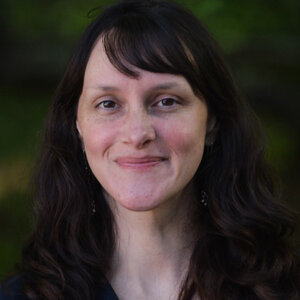
Few challenges facing us today seem as universal, high-stakes, and daunting as the global impacts of climate change and environmental degradation. It’s easy to be overwhelmed by these threats and the complicated and expensive solutions to them. Like many, I take hope from the fearless younger generation driving climate activism, the Greta Thunbergs of the world, who call us into action in solidarity with those who will inherit the earth.
So why aren’t environmental funders investing not just in millennial and Gen Z activism but also in the very youngest global citizens? The philanthropic community uniquely understands the value of planting seeds that will flourish in the decades to come, but few of us are investing in the youngest generation of climate activists and environmental stewards. If we are serious about investing in a resilient, peaceful, ecologically re-balanced future, we should also invest in babies, toddlers, and young children in their most formative years.
We know that the early childhood years are arguably the most important time to invest in human development. Economist James Heckman suggests that investments in young children create multigenerational returns of 7 percent to 13 percent. Today, young children are more disconnected from nature than any previous generation. As early as 2005, Richard Louv coined the term “nature deficit disorder” to describe the growing disconnect between people and nature, reporting that children spent less than half the time in nature as their parents did. That trend has only accelerated since. Can we afford to pass the torch of environmental justice to a generation growing up disconnected from and oblivious to nature in their daily living and learning environments?
We at Trust for Learning, a philanthropic partnership dedicated to expanding ideal learning environments for all children, just published a report on the importance of nature-based learning environments, which foster a love for nature as well as critical faculties and skills our children will need: creativity, courage, and opportunities to playfully solve problems together. To nurture the next generation of climate activists and problem solvers, we can invest in equitable access to nature and collective nature-based learning environments.
Nature-based learning in early childhood education is likely a familiar concept to most readers of this piece, but it is increasingly distant to many children, particularly children of color and those in communities that have been cut off from green spaces. This diminishing access to nature alongside increases in screen time can undermine the social and cognitive development of children and deprive them of opportunities to learn holistically and develop a sense of stewardship of nature.
As funders, we look for high-leverage opportunities, where dedicated investment can have both short- and long-term impacts and spur virtuous cycles of improvement and value creation. Philanthropic investments in equitable nature-based learning can be inexpensive, impactful, and a real force multiplier in the lives of young learners. Exposure to nature supports children’s mental health, facilitates playfulness and creativity, supports children with ADHD, and reminds children of their innate connection to our natural world. Critically, nature helps us repair our relationships with one another. Educators and scientists report that outdoor experiences not only help children develop a sense of community, belonging, and love for nature, but may help stimulate cognitive development.
Investing in nature-based learning early environments is not just a theoretical opportunity. Early childhood around the country are already pursuing this vision with limited philanthropic support. Trust for Learning’s report highlights seven publicly funded learning communities around the country that have found ways to overcome adversity and reconnect their youngest learners to the natural world. From school gardens to farm visits, from transforming parking lots into green playspaces, and from connecting with values of tribal communities to harvesting and eating student-grown produce, real and impactful innovation is thriving in this space—often on the slimmest of budgets. For example, the Alice Birney TK-8 Public Waldorf School was able to create its nature-rich learning environment off of fundraising and grant applications alone.
Today, we have an incredible opportunity to invest in nature-based early learning programs as a long-term, transformative strategy on climate rooted in the science of human development and inspired by a vision of human beings at their best—re-connected to our natural world, working together creatively and courageously to protect and honor it.
Ellen Roche, M.Ed., is chief media and philanthropy officer at Trust for Learning, a philanthropic partnership working to expand ideal learning environments for all young children. She also studies the neuroscience of early emotional and relational development at University of Maryland.


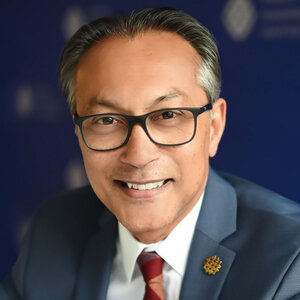
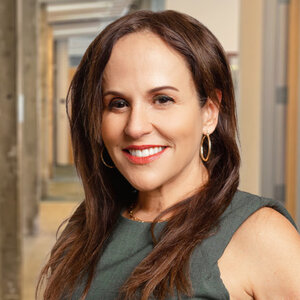
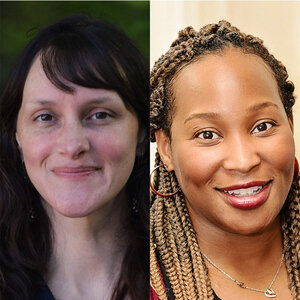
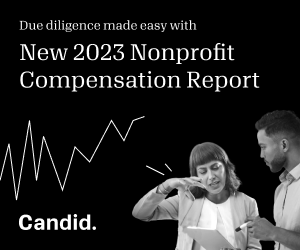


Holistic, long-term thinking and action for the just transition we need